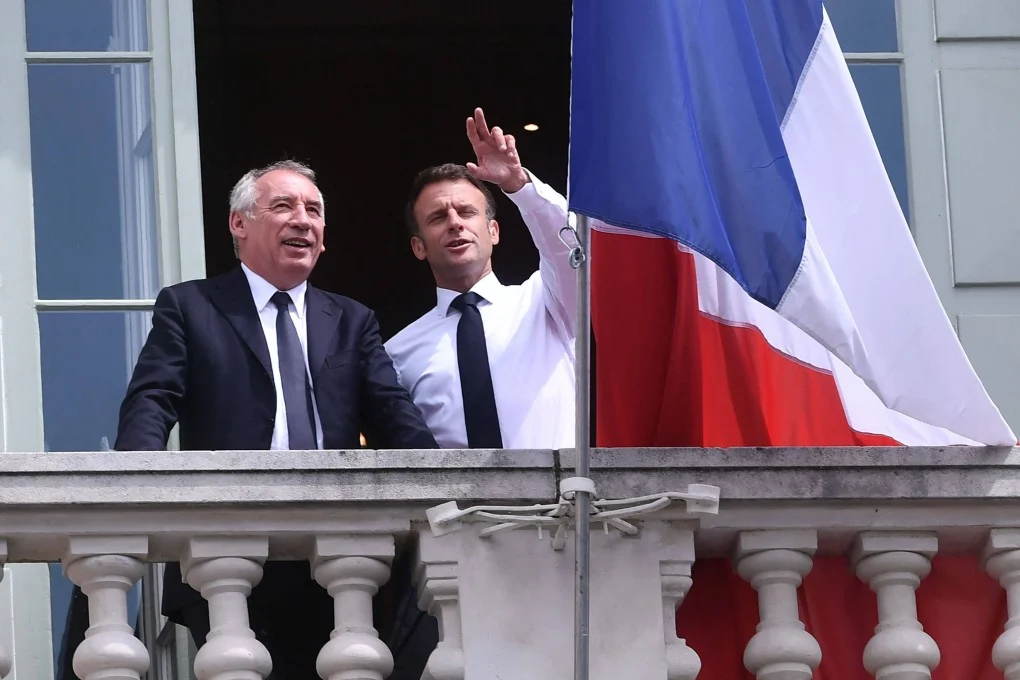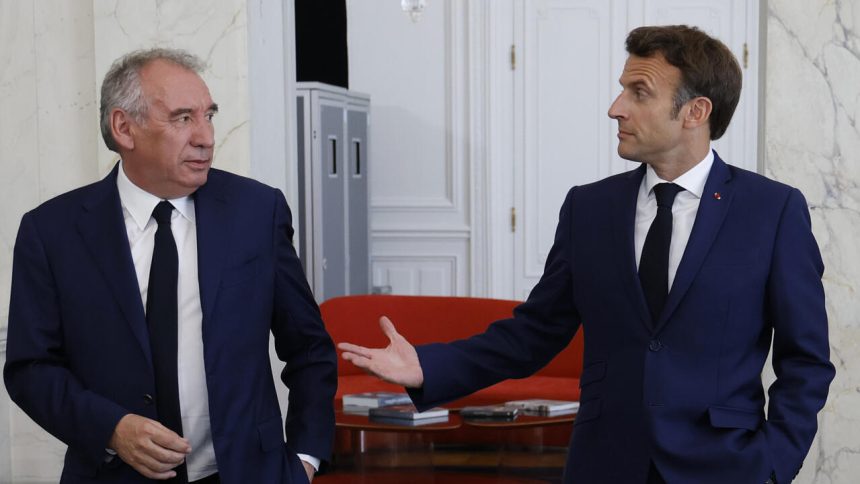French President Emmanuel Macron has appointed François Bayrou as the country’s fourth prime minister of 2024. The veteran centrist and close Macron ally steps into office amidst one of France’s most turbulent political periods, tasked with navigating a hung parliament and steering the nation out of its second major political crisis in just six months.
At the top of Bayrou’s agenda is passing a critical law to extend the 2024 budget—a contentious task that is just the prelude to an even tougher battle over the 2025 fiscal plan. The failure to pass the 2025 budget earlier this year led to the downfall of former Prime Minister Michel Barnier’s government, underscoring the fragile nature of Macron’s administration.
Bayrou, a seasoned political figure and founder of the Democratic Movement (MoDem), faces the daunting task of building consensus in a fractured National Assembly. The current parliament is divided into three warring blocs, making it almost ungovernable.

His political proximity to the deeply unpopular Macron adds another layer of complexity, as public dissatisfaction with the president continues to grow.
France’s political stalemate has become a defining feature of Macron’s second term. After his ruling coalition lost its majority in the June snap elections, the National Assembly has been rendered a battlefield of competing ideologies.
READ ALSO: Turkey Fines Google $75 Million for Antitrust Violations in Ad Services
Bayrou’s appointment comes after days of intense negotiations, during which Macron sought support from leaders across the political spectrum, excluding Marine Le Pen’s far-right National Rally and the hard-left France Unbowed.
While Macron’s outreach included the Socialist Party, any coalition with them could come at a steep cost. As one government adviser put it, “Now we will see how many billions the support of the Socialist Party will cost.”

Bayrou’s immediate challenge will be staving off no-confidence votes, at least until July 2024, when France can hold new parliamentary elections. However, the odds are stacked against him, and if the government collapses again, questions about Macron’s political future will only intensify.
François Bayrou, 73, brings decades of political experience to his new role. As the longtime mayor of Pau in southwestern France, he has cultivated an image of a rural, grassroots leader. Bayrou has run for president three times and has been a key figure in Macron’s ruling alliance since 2017.
READ ALSO: Asian Markets Slip Amid Chinese Stimulus Concerns; Global Markets Mixed
His political career has not been without controversy. Bayrou briefly served as Macron’s justice minister in 2017 but resigned amid allegations of fraudulent employment practices involving his party’s parliamentary assistants. He was cleared of those charges earlier this year, paving the way for his return to the political spotlight.
Bayrou’s first major test will come early in 2024, when lawmakers debate the belt-tightening 2025 budget bill.
The plan, which aims to save €60 billion to reassure increasingly wary investors, faces fierce opposition from both the far-right and the left. Barnier’s government failed to push through a similar bill, and Bayrou will have to find a way to break the gridlock.

The stakes are high. France’s borrowing costs have surged amid political instability, and investors are closely watching how the new prime minister handles the budget crisis. A failure to pass the 2025 budget could further damage France’s economic credibility and deepen its political malaise.
The political chaos has cast a long shadow over Macron’s presidency, raising questions about whether he can complete his second term, which ends in 2027. His inability to maintain stable governance has not only strained his domestic standing but has also created a power vacuum in European politics.
The timing couldn’t be more critical. With Donald Trump potentially returning to the White House, the European Union needs strong leadership to navigate global challenges. France’s political paralysis undermines its ability to play a leading role on the international stage.
France’s current political crisis is a reflection of deeper systemic issues. The fragmented National Assembly, rising public discontent, and mounting economic pressures have created a perfect storm of instability. François Bayrou’s appointment as prime minister may offer a temporary solution, but long-term governance will require significant structural reforms and political consensus.

